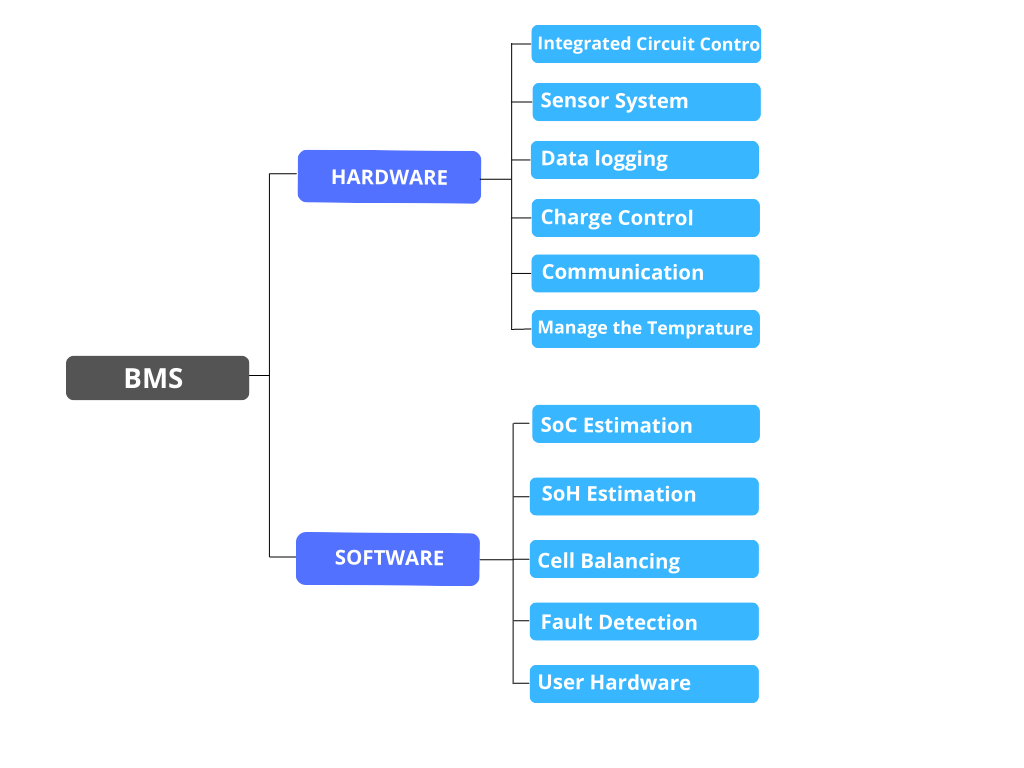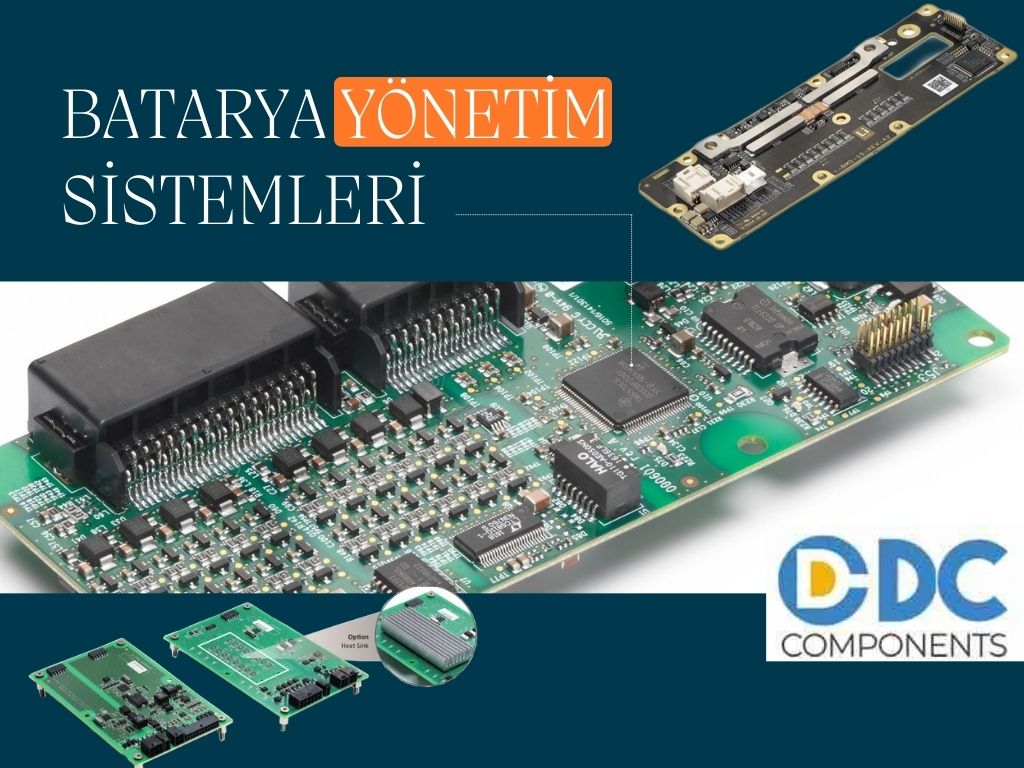Battery Management System
Battery Management System is a component that ensures that the battery operates under normal conditions. Currently, it is needed more and more due to the development of Electric Vehicles and energy storage technology. It is an important component especially in measuring and managing the state of charge(SoC), state of health(SoH), state of energy(SoE) of the battery.
For electric vehicles, the health status of the battery is very important. For example, we see that the battery life of cell phones decreases over time. This is because the health of the battery (SoH) decreases over time. In addition, batteries determine the range of the vehicle and have a direct impact on the cost of the vehicle. With proper battery management, battery life can be increased. For a better battery life, a proper Battery Management System is needed. Battery Management Systems (BMS) are the components used to measure, protect, charge-discharge control and charge balance the battery.
Battery Managment Systems Function
Protection
It keeps the battery under control by managing the battery so that it does not cause overcharging and over-discharging situations, thus protecting the battery. Manages the battery to avoid high temperature and high charge conditions. This is undesirable as a high charge will cause damage to the battery and can be life-threatening, especially up to combustion. Over-discharging of the battery is undesirable as it is dangerous for the life of the battery.
Data Processing
It monitors the state of charge (SoC) and state of health (SoH) of the battery, processes them and presents them to the user. Accurate processing of the SoC and SoH status of the battery is one of the important priorities in BMS. In terms of battery health status, especially the information needs to be processed correctly.
Communication
It is used to transfer the state of charge, health status, cell temperatures and high charge-discharge states of the cells in the battery via a communication system. For example, CAN is one of the common communication systems used for battery communication.
Measurement and Monitoring
The BMS allows us to measure the cell voltages and temperatures, total voltage and total current of the battery and monitor them through the battery management system. Accurate measurement is very important for battery systems. The main task of these systems is for the BMS to make accurate measurements and take measures by processing the data accordingly.
BMS consists of two parts: SOFTWARE AND HARDWARE

Battery Management Systems Application
Battery Management Systems, It is important for battery health that the battery operates under normal conditions. In particular, it is the battery management system that will ensure this.

1. Industrial
- Garbage Compressor
- Forklifts
- Cranes and Machines
- Robots
- Shuttle Robots
- Electric train traction batteries
- Street Sweeper Machines

Automotive
- Passenger Cars
- Utility Cars
- Motocycle
- Sports Cars
- Trucks
- Buses

Marine
- E-wakeboards
- Leisure submarines
- Marine batteries

Light Vehicle
- Scooter
- Golf cart batteries
- Luxury golf cars
- Quads

Energy Storage
- Grid support
- Industrial ESS
- Peak Shanving

